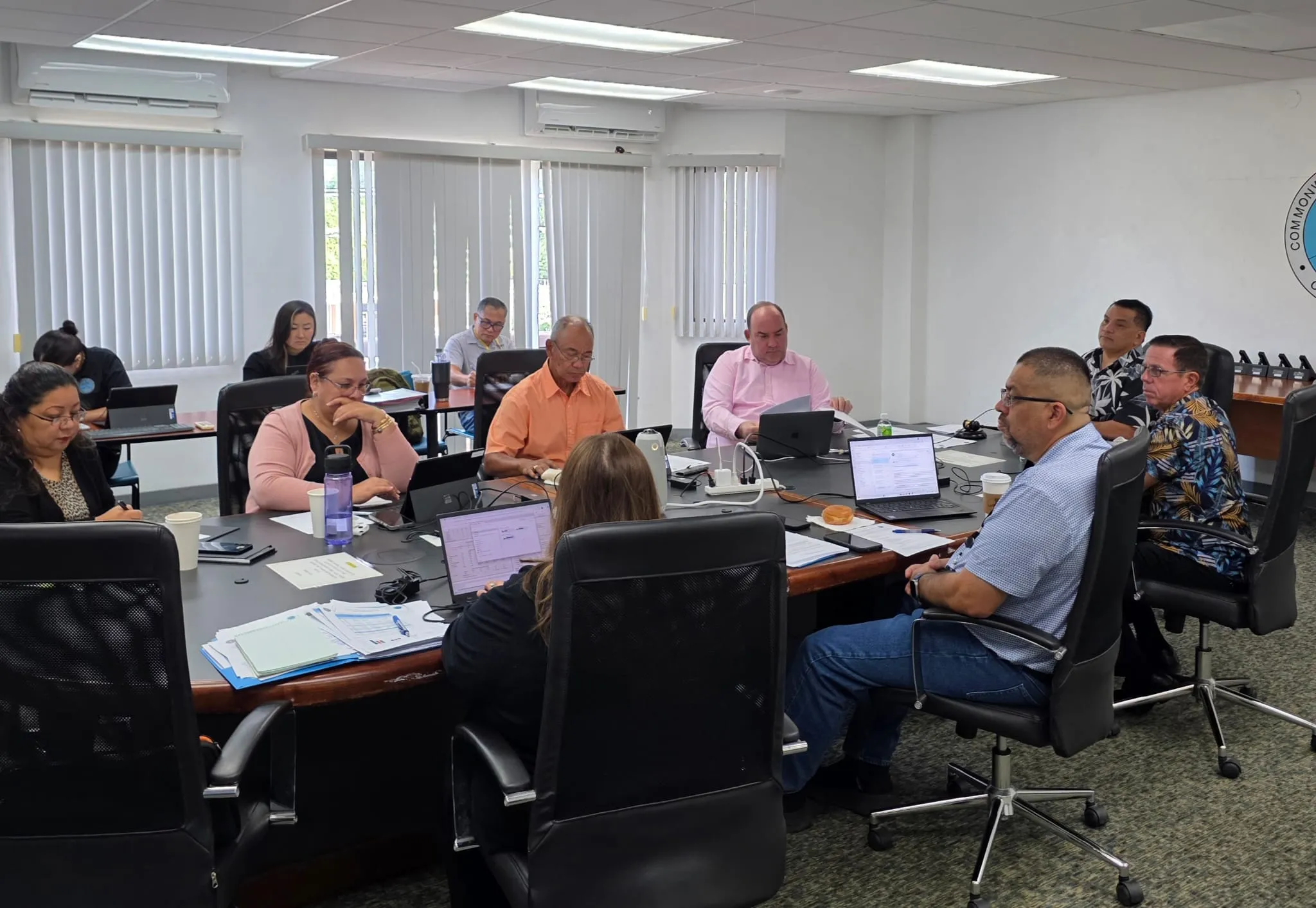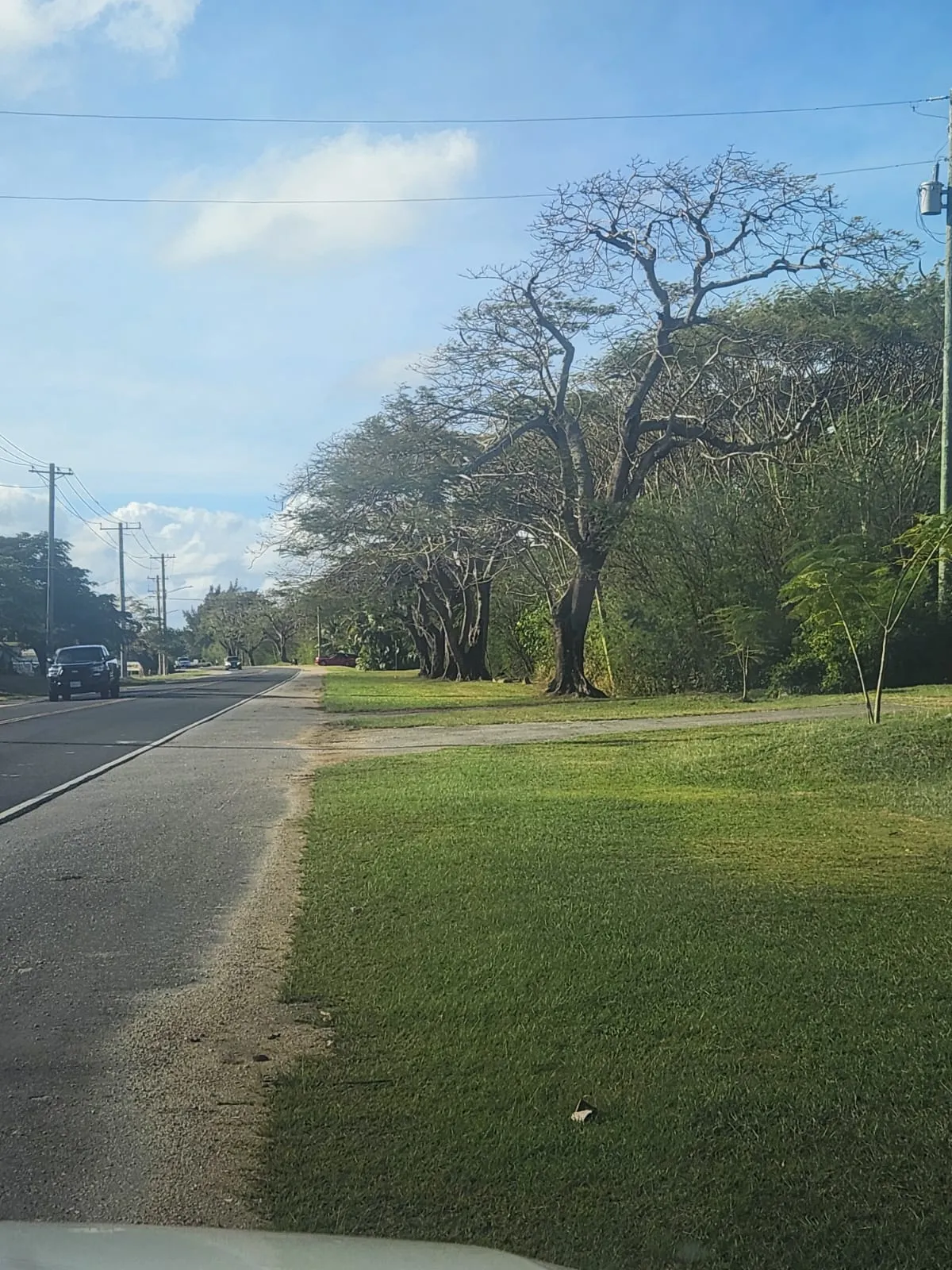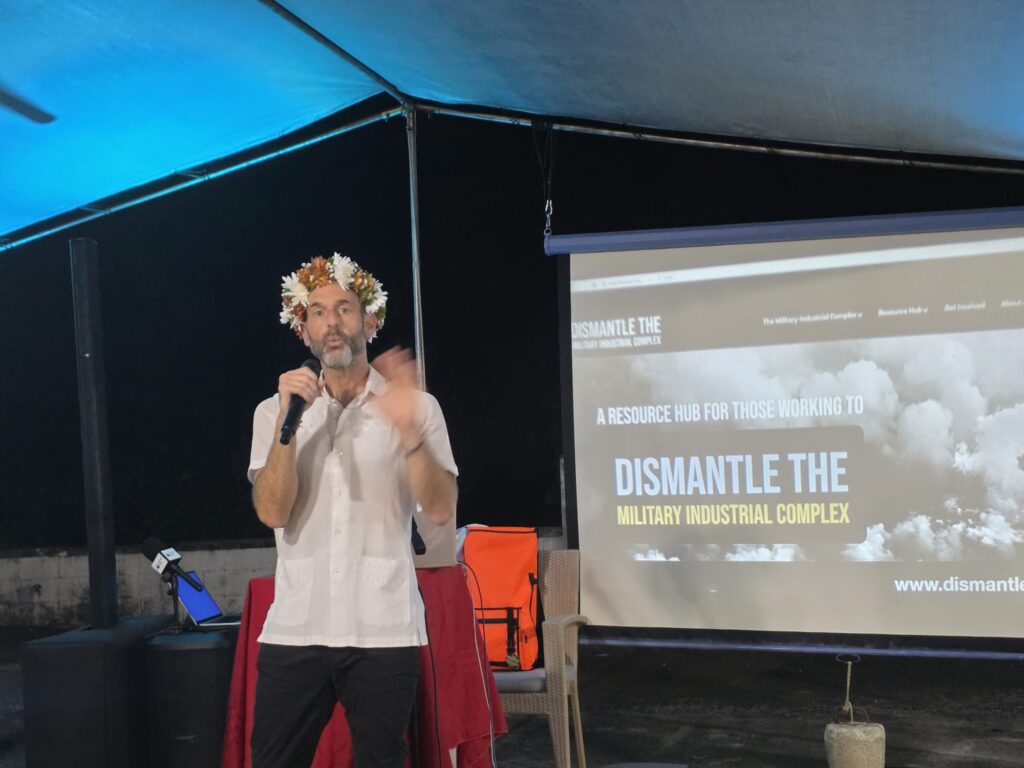
By Bryan Manabat
bryan@mvariety.com
Variety News Staff
AT a forum organized by Our Common Wealth 670 and held at Caravan of Food in Garapan on Nov. 14, political anthropologist Dr. David Vine delivered a pointed critique of U.S. military expansion in the Marianas, urging communities to challenge prevailing myths underpinning militarization and to reclaim their rights to justice, security, and well-being.
Vine, author of “Island of Shame, Base Nation,” and “The United States of War,” began by thanking local activists who, he said, “work tirelessly on a daily basis to make the Marianas and the world more peaceful, more just, more equitable, and have won tremendous victories.” He cited successes in protecting local environments and noted scaled-back military training plans on Tinian.
In his remarks, Vine argued that the escalating military presence “is not about defending the Marianas or the United States” but instead advances “the profit-making interests of a small group of corporations and a wealthy few.” He dismissed claims that militarization brings economic benefits, calling military spending “a terrible job creator, a terrible economic development strategy.”
“Research shows that investing in clean energy, infrastructure, health care, or education creates far more jobs than the same amount of money invested in the military,” Vine said, citing data from the Costs of War project.
Situating the Marianas in a broader historical context, Vine contended, “U.S. military bases abroad have never been defensive in nature. They have been offensive platforms for war … The historical record shows: if you build them, wars will come.” He warned that the accelerating Pacific buildup increases the risk of a clash between U.S. and Chinese forces that “could easily spiral out of control into a nuclear war.”
Vine also criticized the military-industrial complex, describing it as a network linking the Pentagon, Congress, and defense contractors. “War profiteers — weapons manufacturers like Lockheed Martin and Boeing — make literally billions of dollars every year … enriching themselves off war and preparations for war,” he said, calling for collective action to challenge their influence.
He urged listeners to harness their “anger about what’s not right” and demand a system that prioritizes human needs. “We need a movement that will take on the war profiteers, the military-industrial complex, and the wealthy few, following the lead of activists here in the Marianas who are saying: enough with the buildup, enough with the bases, enough with the testing and training,” Vine said.
Organizers said the forum aimed to raise awareness about the impacts of militarization on local communities and the environment while inspiring collective action for justice, accountability, and the protection of ancestral lands.
Bryan Manabat was a liberal arts student of Northern Marianas College where he also studied criminal justice. He is the recipient of the NMI Humanities Award as an Outstanding Teacher (Non-Classroom) in 2013, and has worked for the CNMI Motheread/Fatheread Literacy Program as lead facilitator.











